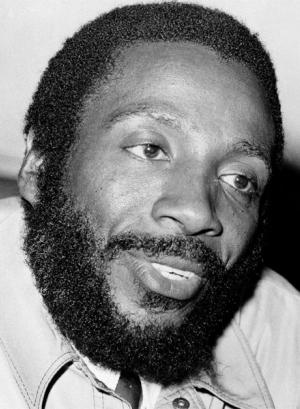dick-gregory-450x600.jpg

Dick Gregory
Dick Gregory
Dick Gregory was a comedian, writer and activist who rose to fame during the Civil Rights era and became a key figure in advancing social change with his pointed obervations about race relations and other issues.
Although his first goal was to entertain his audiences, Gregory, like fellow comics Lenny Bruce and Mort Sahl, addressed social and political topics that made audiences think — and sometimes squirm — amid their laughter.
Dick Gregory was a comedian, writer and activist who rose to fame during the Civil Rights era and became a key figure in advancing social change with his pointed obervations about race relations and other issues.
Although his first goal was to entertain his audiences, Gregory, like fellow comics Lenny Bruce and Mort Sahl, addressed social and political topics that made audiences think — and sometimes squirm — amid their laughter.
The St. Louis native started his career in Chicago. A major break came when Hugh Hefner, who had seen Gregory perform for a black audience and was impressed, booked him at the Playboy Club. It was intended as a one-night gig, but Gregory was such a hit with the audience, made up primarily of white executives from a frozen-food company, that the engagement was extended for several weeks.
Over time, with material that included reflections on racism, segregation, even lynching, Gregory went on to headline some of the best known nightclubs in America, including the hungry i in San Francisco and the Village Gate in New York City.
His popularity with white audiences lent Gregory a crossover appeal that paved the way for successors such as Bill Cosby and Richard Pryor.
Following his participation in a 1962 demonstration for black voting rights in Mississippi, Gregory became increasingly devoted to social activism. Over the years he was arrested multiple times, and in 1965 he was shot in the leg by a rioter while seeking to keep the peace during the Watts riots in Los Angeles. He also went on hunger strikes to draw attention to such issues as the Vietnam War, the failed Equal Rights Amendment, police brutality, South African apartheid, nuclear power, prison reform, drug abuse and American Indian rights.
As a performer, he made numerous television appearances, including spots on The Ed Sullivan Show and talk shows hosted by Jack Paar, Johnny Carson, Merv Griffin, Mike Douglas, David Frost, Regis Philbin and others. In addition, for a time, he was cohost of the series Black Journal. In later he years he appeared on the comedy series Reno 911! and Wonder Showzen.
He also starred in the 1967 film Sweet Love, Bitter, as a saxophone player loosely based on jazz legend Charlie Parker.
Gregory died on August 19, 2017, in Washington, D.C. He was 84.
The Television Academy database lists prime-time Emmy information. Click here to learn more